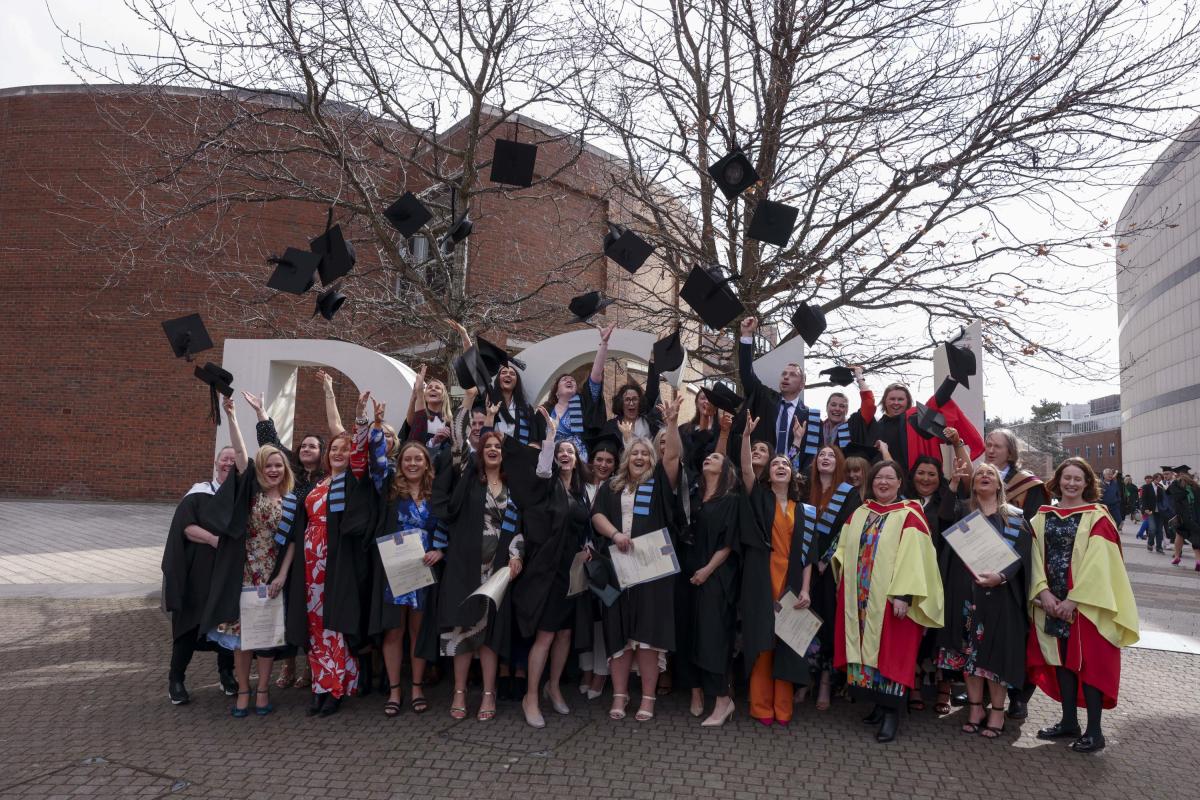

New DCU Programme is ‘transformative’ for teachers and their students
“Probably the most transformative course I've ever taken in my life,” is how Courtney describes her experience as one of the first graduates of a new professional development course for teachers, the Graduate Diploma in Social, Personal and Health Education/Relationships and Sexuality Education (SPHE/RSE).
Courtney, who teaches in the east of the country, is passionate about SPHE/RSE and believes the subject is vital for the personal development of teenagers who are “bombarded with messages that could be coming from really biased or really unreliable places.”
The new DCU course has changed the way that she teaches the often sensitive issues involved with SPHE/RSE. “Now, I feel really confident, standing in front of a class and hosting a dialogue between the kids themselves that is respectful, but also honest and true to their diversity of views.”
Developed by academics at DCU Institute of Education, the Graduate Diploma is the first professional development qualification of its kind in Ireland for teachers of this subject in secondary schools.
Programme Chair Dr Kay Maunsell says that previously there was “quite a gap” in the professional development of teachers of the subject. The new Department of Education funded course, created at DCU, aims to provide “an innovative, evidence-based, systemic and inclusive programme of professional development.”
Overall, Dr Maunsell says the course helps teachers identify “their own values and strengths in teaching the subject” and encourages them to see their students as “active agents in their own learning” when it comes to health, relationships and sexuality.
Teachers who graduated with the Graduate Diploma SPHE/RSE earlier this year, say it has empowered them to take a fresh approach to the subject.
“It's completely changed my identity as a teacher, and outside of that as well,” says Emma Fitzpatrick, who teaches at Ardgillan Community College, in Balbriggan.
Her increased confidence is having an impact on students' engagement. “It's always high energy and you get to know the students on a much more personal level.”
Emma’s students were enjoying SPHE/RSE so much that they petitioned the school for additional classes.
Teachers on the course came from a variety of backgrounds and school ethoses. For Dr Maunsell, a key part of the programme was to “unpack the impact of their school context on their delivery of SPHE and RSE.”
Lectures provided a space for the participants to discuss and debate some controversial topics. Courtney and Emma say that these discussions had a big influence on their approach to teaching SPHE/RSE.
“Not everybody in that room agreed about everything, or agreed about how things should be taught, or what age things should be taught,” says Courtney. “Having those conversations with people who had a diverse range of views and experiences and backgrounds was challenging but also so enriching because that is what our classrooms are.”
Emma agrees that those debates have greatly influenced her teaching style. “So when I went back to school and those tough conversations came up, I was much better equipped.”
The ‘class of 24’ developed a close bond and this group of teachers, working across Ireland, continue to support each other and share resources, sometimes sharing lesson ideas and plans through their WhatsApp group.
Dr Maunsell is full of praise for the programme’s first graduates, describing them as ‘pioneers’ of a new approach to an important subject. “They stepped up in a field that is quite challenging in relation to the current public discourse around the teaching of Social Personal and Health Education and Relationships and Sexuality Education. So they put themselves at the forefront of change and they are an incredible group of humans.”
For the graduates, the DCU experience has been deeply rewarding and positive. “I know that my lessons are better than they were before,” says Courtney. “And that comes from working with these amazing lecturers in DCU.”
SPHE/RSE is currently not a registered subject for post-primary teachers with the Teaching Council. According to Dr Maunsell, this may contribute to it being “under undervalued, under recognised.”
As the Graduate Diploma SPHE/RSE beds in and the graduates bring their learning back to the classroom, her hope is that the course will “leverage some change in relation to the status of the subject.”
More information on the Graduate Diploma in Social, Personal and Health Education/Relationships and Sexuality Education can be found here.
